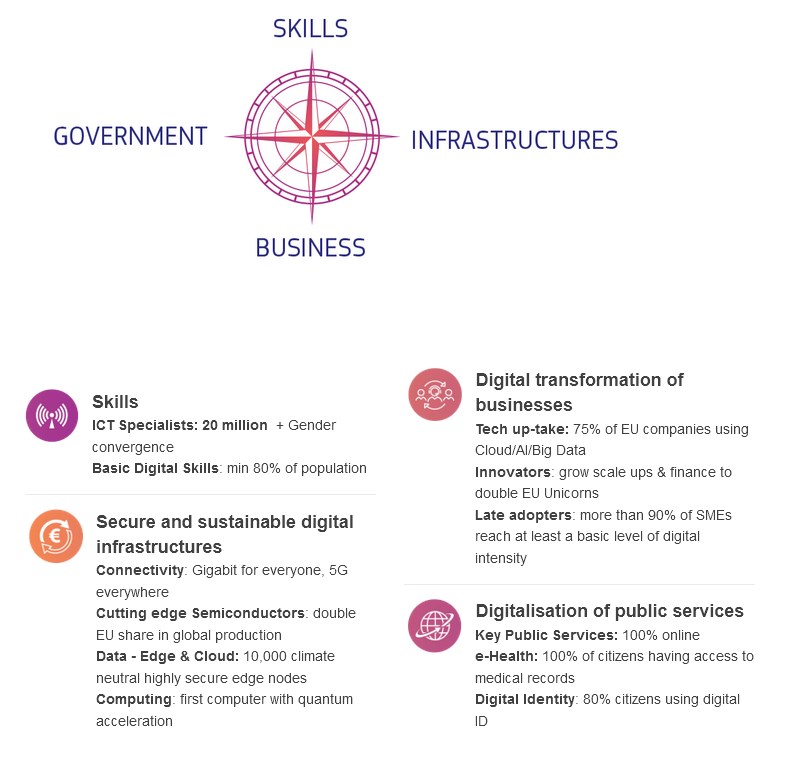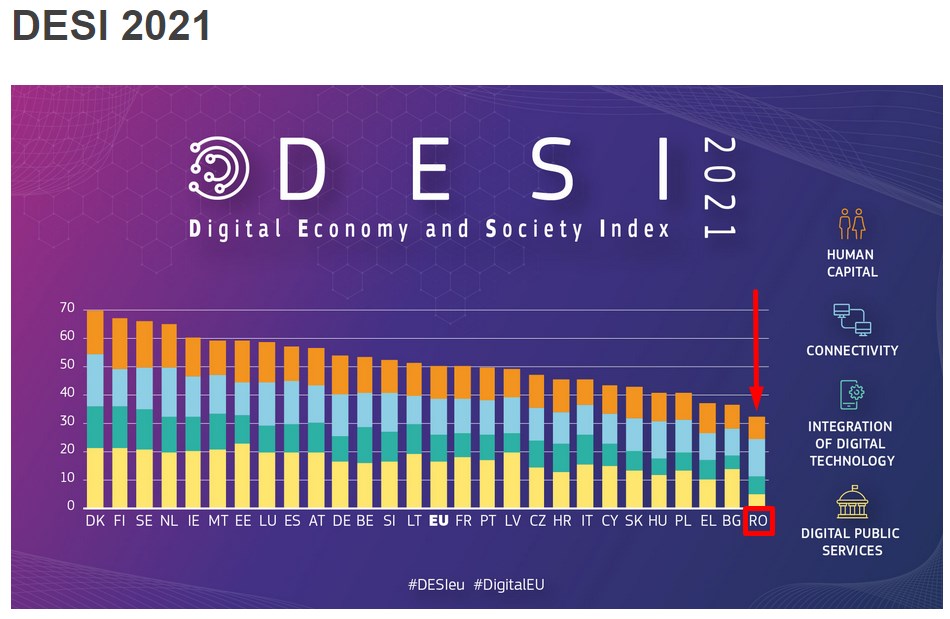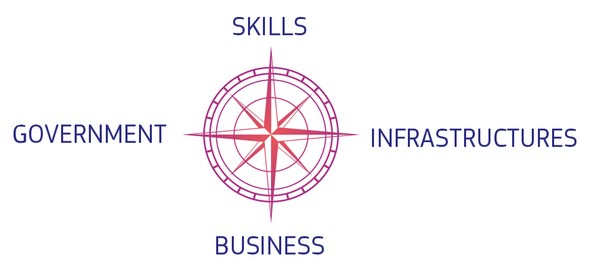This post is also available in:
Română
The European Commission ( EC) launched the first calls for proposals on 12 January under the digital component of the European Interconnection Mechanism (ENM) . With a planned budget of € 258 million, calls for proposals aim to improve digital connectivity infrastructures across the Union, in particular gigabit and 5G networks, and to contribute to Europe’s digital transformation. You can find out more about the application, evaluation and award process on Online Information Day , January 19th.
The Commission will co-finance actions to ensure connectivity to 5G networks for the main transport routes and essential service providers in local communities, as well as actions to implement or modernize bus networks based on advanced technologies.

Calls for proposals will also focus on aggregated services in cloud (cloud federation ) of connecting infrastructures, on the main infrastructures for global digital portals (under the Global Gateway strategy) , such as submarine cables, as well as on preparatory actions for the creation of operational digital platforms for transport and energy infrastructure across the EU. All this follows the adoption in December 2021 of the first work program for MIE Digital , which allocates funding of over 1 billion euros for the period 2021-2023.
Calls for proposals under the MIE – Digital are mainly open to entities, including Joint Undertakings, established in the Member States and in overseas countries or territories. Interested candidates can find out more about the application, evaluation and award process on the online information day on 19 January.
The second generation of the digital component of the European Interconnection Mechanism (MIE-2 program) (2021-2027) builds on the previous one, which supported cross-border digital infrastructure and services, as well as free internet access for local communities through the WiFi4EU initiative from 2014-2020.
You can see more concrete details here .
Romania – the last EU country in the Digital Economy and Society Index for 2021
Romania ranks 27th out of 27 EU member states in the 2021 edition of the Digital Economy and Society Index (DESI). In terms of human capital , Romania ranks 26th, obtaining a score below average for most indicators. Although this country has a large number of ICT graduates (ranking 4th), the shortage of ICT specialists limits the country’s ability to innovate and reap the benefits of digital transformation. On the other hand, in terms of the number of women specialists in the field of ICT, Romania ranks 3rd.
In terms of connectivity, progress has been made in 2020 in terms of fixed broadband coverage, but the adoption of broadband services has progressed at a slower pace. However, Romania ranks 7th due to the high bandwidth usage level of at least 100 Mbps (52%). Connectivity in Romania could be further enhanced by focusing on bridging the digital divide between urban and rural areas, streamlining licensing procedures, updating the broadband strategy to reflect the 2025 gigabyte targets, and transposing the regulatory framework accordingly. with EU law.

Romanian companies do not take full advantage of digital technologies ( electronic information exchange, social media platforms, large volumes of data and cloud ), except for artificial intelligence.
In terms of digital public services, Romania ranks last on key indicators, such as digital public services for citizens and businesses, users of e-government services and pre-completed forms. Projects aimed at meeting the various digital priorities are included in the National Investment and Economic Recovery Plan launched by the Romanian Government in July 2020, with a budget allocation of EUR 100 million from EU and national funds, covering the period 2021-2030.
Digital projects in the program include:
– creating an interoperability node, together with identifying and connecting the main data registers;
– creating a single point of contact;
– introduction of the electronic identity card;
– migration of public services to a government cloud;
– the development of open data systems that allow private sector access to data assets held by general government;
– investments to increase the capacity to manage cyber risks and to connect electronic tax cash registers.















